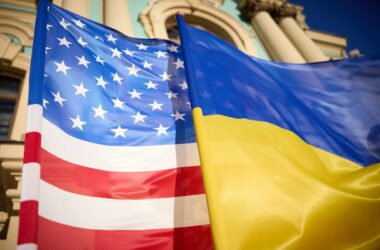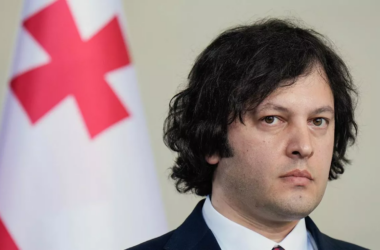The Eurasia Forum convened in Budapest late this week, drawing global attention with its focus on fostering connectivity, economic cooperation, and geopolitical dialogue across the Eurasian region. Hosted by Hungary’s central bank (MNB) and attended by a diverse range of policymakers, academics, and business leaders, the forum explored pressing global challenges, from technological transformation to multilateral cooperation.
Hungarian Prime Minister Viktor Orbán delivered a keynote speech emphasizing Hungary’s role as a bridge between East and West. He portrayed the nation as embodying the “living idea of Eurasia,” underlining Hungary’s commitment to fostering partnerships with non-Western powers such as China and Russia while maintaining its EU membership. Orbán also criticized what he characterized as the EU’s “ideological rigidity” and the pressures exerted by Brussels on member states, defending Hungary’s sovereignty and independent foreign policy.
Viktor Orbán outlined a bold vision that situates Hungary and the broader Eurasian region at the heart of the 21st century’s economic and geopolitical landscape. He emphasized the transformative rise of Asian nations, their economic vitality, and the enduring strength of their civilizations, presenting Eurasia as the next global powerhouse.
Orbán highlighted the strategic importance of Eurasia as the world’s largest contiguous landmass, home to 70% of the global population and producing 70% of the global economy. This demographic and economic preponderance, he argued, underscores Eurasia’s unparalleled competitive edge. He stressed that Eurasia’s civilizational diversity strengthens its resilience and adaptability, making it a cornerstone of global politics and trade.
EU’s Place in a Changing World
Orbán delivered a sobering assessment of EU’s decline amid global transformations. He noted that in purchasing power parity terms, the EU would rank as one of the poorest states within the United States and lamented the absence of European economies among the world’s top five. The waning of European innovation further illustrated the continent’s diminished standing in the global hierarchy.
In Orbán’s view, Europe’s elite remains preoccupied with defending outdated systems rather than embracing the opportunities presented by Eurasian connectivity. He argued that Europe must abandon its defensive mindset, stop forming exclusive blocs, and recognize its natural integration into the Eurasian framework. Without such a shift, Orbán warned, Europe risks marginalization in the coming “Century of Eurasia.”
Hungary’s Independent Strategy
Acknowledging Europe’s inertia, Orbán underscored Hungary’s proactive stance. He presented Hungary as a trailblazer in Eurasian integration, adopting a deliberate national policy that leverages its geographic and historical ties. Orbán called Hungary “the living idea of Eurasia,” balancing its Asian heritage with its Western European identity.
Key aspects of Hungary’s strategy include:
- Diversified Trade and Investment: Over the past decade, Hungary has doubled its exports to both Eastern and Western markets.
- Energy Security: Hungary has diversified its energy sources, reducing dependence on traditional suppliers.
- Infrastructure Investments: By 2025, Hungary will embark on globally significant projects, supported by 300 government-backed initiatives.
Orbán emphasized that Hungary’s disputes with Brussels stem from its commitment to this independent approach. While Hungary remains a NATO member and maintains ties with the United States, Orbán expressed hope for smoother relations with a new U.S. administration, contrasting it with the strained ties of recent years.
Looking ahead, Orbán expressed optimism about Hungary’s trajectory within the Eurasian context. He argued that the emerging global economic order offers Hungary a historic opportunity to cement its role as a bridge between East and West. He positioned Hungary as a model for nations navigating the shift toward multipolarity, leveraging cultural heritage and strategic foresight to secure long-term prosperity.
By aligning itself with the rise of Eurasia while preserving Western ties, Hungary exemplifies Orbán’s vision of connectivity over confrontation. The prime minister concluded with a call for Europe to rethink its global role, warning that failure to adapt would consign the continent to irrelevance in the new world order. For Hungary, the path forward is clear: proactive engagement with the rising East and a bold assertion of its unique Eurasian identity.
Geopolitical Context and Implications
The West: Relations with the EU and USA
Orbán’s rhetoric highlights Hungary’s growing divergence from the EU mainstream. His stance raises concerns in Brussels about Hungary’s commitment to EU unity, especially on sensitive issues such as sanctions against Russia, energy policy, and relations with China. Orbán’s alignment with Eastern powers risks exacerbating existing divisions within the bloc, potentially undermining collective decision-making on foreign policy. However, his emphasis on multipolarity may resonate with other EU members wary of over-reliance on the U.S. or strict adherence to Western policies.
Orbán’s critiques implicitly challenge U.S.-led global leadership, particularly its influence over European security and foreign policy. His call for a more autonomous Europe aligns with the broader European desire to reduce dependency on Washington, especially in light of the U.S.’s shifting focus towards Asia. This position aligns Hungary with other EU nations advocating for “strategic autonomy” but could strain Budapest’s ties with Washington, especially as U.S. administrations, both conservative and liberal, have been critical of Hungary’s ties to Russia and China.
Relations with Russia
Orbán’s attitude reaffirmed Hungary’s unique and bold stance on Russia, emphasizing the importance of dialogue over confrontation. Hungary has consistently opposed EU sanctions on Moscow, citing their economic impact and limited effectiveness. By advocating for a pragmatic approach, Orbán positions Hungary as a potential mediator in the ongoing Ukraine conflict. However, this stance risks isolating Hungary within the EU and NATO, where support for Ukraine remains a priority.
Relations with Asia
Orbán’s emphasis on Eurasian integration reflects Hungary’s growing alignment with China’s Belt and Road Initiative (BRI). Hungary has actively sought Chinese investments, particularly in infrastructure and technology, and positioned itself as a gateway for Asian goods entering the EU. Orbán’s rhetoric also signals support for a multipolar order where Asian powers play a more prominent role, challenging the dominance of Western-led institutions. This approach aligns Hungary with countries like Serbia, which also emphasize closer ties with Beijing and Moscow.
Hungarian Prime Minister Viktor Orbán’s recent diplomatic engagements, including receiving a state order from Turkey, the “Supreme order of the Turkic World” and hosting Kazakh President Kassym-Jomart Tokayev in Budapest, align with his broader geopolitical vision of deepening ties across Eurasia.
Orbán was awarded Turkey’s highest state honor by President Recep Tayyip Erdoğan, reflecting Hungary’s role as a bridge between the EU and Turkey, a critical Eurasian actor. This recognition underscores Hungary’s support for Turkey’s EU accession talks and its position in fostering connections between Europe and Asia. It also highlights Orbán’s commitment to a multipolar global order where nations independently forge cooperative ties beyond traditional Western alliances.
Welcoming Tokayev, Orbán emphasized Hungary’s cultural and historical connections to Central Asia and reiterated his vision of Hungary as a gateway for Eurasian economic and political integration. Kazakhstan, as a key player in Central Asia, is vital to Hungary’s strategy to expand trade and investment partnerships while diversifying its geopolitical and economic dependencies.
Together, these actions reinforce Orbán’s strategy of positioning Hungary as a central player in the emerging Eurasian century, leveraging relationships with Turkey, Kazakhstan, and other regional powers to solidify its relevance in a multipolar world.
Future Challenges
Orbán’s vision, while ambitious, faces significant obstacles. Hungary’s close ties with China and Russia have drawn criticism from Western allies, straining its EU relationships. Moreover, as the EU debates its future in a multipolar world, Hungary’s approach may either serve as a model for pragmatic engagement or exacerbate divisions within the bloc.
At the Eurasia Forum, the Prime Minister framed Hungary as a proactive player in shaping this emerging order, offering a platform for cooperation and dialogue. However, whether Hungary can effectively balance its Eastern partnerships with its commitments to the EU and NATO remains an open question.
Orbán’s vision encapsulates the tension between multipolarity and Western-led unipolarity in the current geopolitical landscape. His emphasis on Eurasian cooperation reflects a broader trend of smaller states leveraging ties with rising powers like China to balance traditional alliances. For Hungary, this strategy offers economic and geopolitical benefits but risks alienating key partners in the EU and NATO.
As the global order evolves, Orbán’s speech highlights a critical question for Europe: how to navigate its position in a multipolar world while preserving unity and influence. Hungary’s stance may serve as both a challenge and an opportunity for the EU to redefine its approach to global governance




